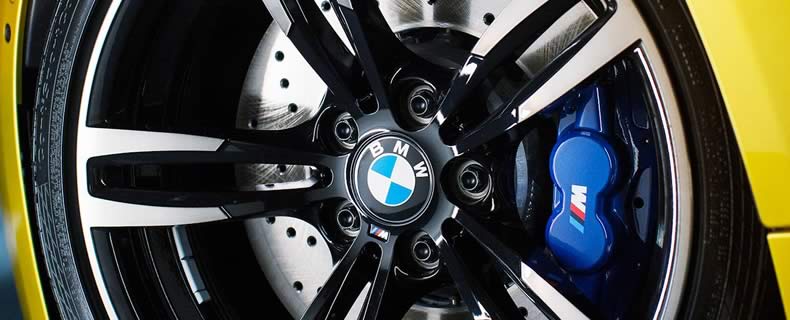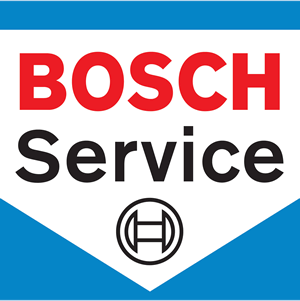
Upgrading BMW Brakes
There is a lot of confusion amongst owners as to how good the
brakes are on their performance BMWs and whether or not they
should upgrade them.
For Z4M, M3, M3 CSL and V10 M5/M6 owners the standard brakes
are really not as bad as many people make out. The issue with
the
BMW systemis that it uses a single pot caliper with a swinging
design.
The pad and piston area is actually fairly large, and in most
cases the disc diameter is also large. Where the factory braking
system usually
fails down is initially in the choice of pad material. BMW use
pads with excellent cold bite to work under all conditions on
the road, but which then are not very resistant to fade. Given
that most BMWs are in excess of 1300kgs in weight and qualify
as heavy cars, the pads are not really up to anything more than
normal day-to-day driving. The brake hoses and fluid are also
not up to the job of spirited driving, and definitely not capable
of more than one or two laps on a trackday. The discs
on the M power cars are usually good with later models having
fully floating discs for better heat management.
The downside
is that the discs often have cast holes which is good for water
dispersalbut increases the likelihood of cracking under extreme
road or trackday driving conditions. The BMW discs are also generally
quite thin in comparison to aftermarket items, further decreasing
their
ability to deal with heat. This is generally only a problem for
drivers who are going to do trackdays as it is not likely that
spirited road use will result in cracked or warped discs.
Track
use will require better heat management, which will mean either
thicker discs with separate bells, or a cooling arrangement with
air ducted to the disc.
Non-M cars tend to have cast bells, and often small single piece
discs with quite small calipers.
Drivers of 3.0 Z4s and E46 330i cars are really short-changed
in the braking department especially if they are going to do trackdays.
So on the one hand we have the cheaper conversion of uprated
pads, such as Performance Friction or Ferodo DS2500 which will
improve everyday road use in conjunction with uprated hoses and fluid.
For trackday use, more aggressive pads are required, such as
Pagid RS29 to withstand the high temperatures that will be reached
by the pads and discs on track. This is where the BMW single
piston caliper design starts to fall apart, and you discover
why BMW
fit soft pads in the first place – the reason is that the
swinging caliper is not very rigid or progressive in nature,
meaning that there is no finesse in the braking.
Outright stopping
power with a track pad such as the Pagid is excellent,
almost as good as an AP kit, but there is no finesse. You are
either flat-out braking or not braking at all. Techniques such
as trail-braking into corners are impossible. The aggressive
pad solution is ideal if all you are going to do is 1 or 2 trackdays
a year. If you want to do regular spirited road driving and trackdays,
then you really should opt for an
aftermarket kit. AP Racing kits are our preferred choice, and
we run these on all our cars.
The AP calipers use a conventional
piston design, 6 pistons at the front and 4 at the rear. The
discs are far superior to the OEM ones in that they are 4mm thicker
at least, and instead of cast holes they feature
vented vanes and grooves. They are much more resilient to heat,
run much cooler and last far longer given that they are less likely
to crack. The caliper, disc and bell is a much lighter combination,
with
a combined weight-saving over 4 wheels of up to 20kgs on a BMW.
You can choose with the AP kit whether to have a solid or floating
disc for better heat management, though it is not essential unless
you have a very heavy car (M5s for example). There is a much
better
selection of pads in nearly every compound and the braking is
extremely progressive translating into much quicker lap times overall.
Discs and pads last much longer too, so the more trackdays you
do then the quicker the kit
will pay for itself! One final point is that many owners only
upgrade the front brakes to APs, as it is not viewed essential
to upgrade the back. Whilst it is true that the front of the
car takes the majority of the
braking effort, by only upgrading the front you will alter the
brake balance of the car, and are likely to have more front lockups,
resulting in the ABS system being on more often than it used
to be. If you do not want to buy a rear kit, then you must at
least upgrade the rear pads to a more aggressive material to
maintain the front-rear balance. Equally, on most BMWs you will
find that
the AP 4 pot caliper is a little large for the rear, and that
a softer pad will generally work better in the rear with the APs.
We like to use RS29s all round on track, but run either a Pagid
RS42 at the rear or a Ferodo DS2500 on the road.






